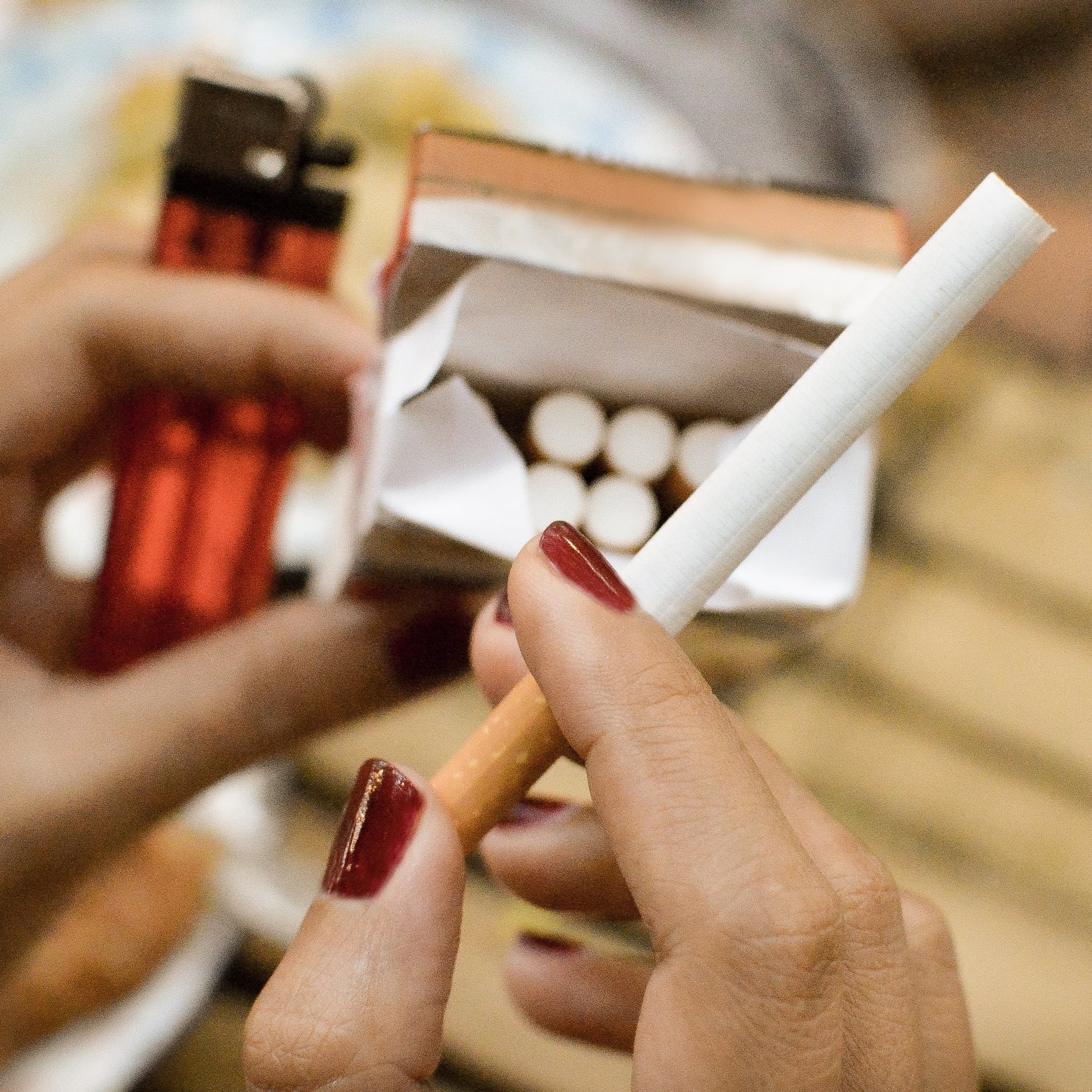
HOW SMOKING CIGARETTES AFFECTS YOUR SKIN OVER TIME
Smoking doesn't just wreak havoc on your lungs; it can also have a severe impact on your skin. It's a side effect that many people don't consider. According to board-certified dermatologist Corey L. Hartman, MD, the founder of Skin Wellness Dermatology in Birmingham, AL, smoking ages the skin and causes dryness, dullness, and unevenness. If you walk into your dermatologist's office as a smoker, he says the signs are apparent: skin looks weathered and leathery, with enlarged pores and a rough, bumpy texture.
As if those symptoms weren't harsh enough, someone who has been smoking for a long time can suffer from premature aging, fine lines and wrinkles, and overall saggy features. In fact, according to a study published in 2012, "It has been observed that the skin of smoking addicts at the age of 40 years resembles skin of non-smoking [70-year-old] adults."
"Smoker's skin" is what Dr. Hartman calls this phenomenon. "You can almost tell it at the door," he tells PS.
But the impact smoking has on your skin goes far deeper than just surface level, wreaking havoc on your skin's overall health. To learn more about smoking's effects on the skin, including how it puts you at a higher risk for skin cancer, keep reading.
Smoking Compromises Your Skin Barrier
Research has found that long-term cigarette smoking may affect proteins and lipids in your skin barrier. "A healthy skin barrier is essential for radiant, plump skin," Dr. Hartman says. "In the long term, if you have a compromised skin barrier, you will see more pronounced signs of aging."
Your skin barrier, which is the outermost layer of the skin, acts as a protective shield. "[It] protects deeper skin layers and your organs from environmental threats like UV exposure and pollution," he says. In addition to protecting your body, a healthy skin barrier is essential to keeping moisture in your skin. "You can think of the skin barrier like the bricks and mortar of a house, with a healthy skin barrier not having any cracks or breaks in the mortar."
Smoking Leads to Wrinkles, Sagging, and Crepey Skin
We've already determined that an unhealthy skin barrier can lead to earlier signs of aging, but why else is a damaged skin barrier so detrimental? Kseniya Kobets, MD, the director of cosmetics dermatology at Montefiore Einstein Advanced Care, explains that a healthy skin barrier function means the skin is optimized and skin-barrier lipids like ceramides, free fatty acids, and cholesterols are functioning correctly. "[The same 2023] study showed that the skin directly exposed to smoke is more affected, but they saw that skin on the rest of the body tried to compensate for the smoke damage," Dr. Kobets says. "A disrupted skin barrier can manifest as worsening rosacea, sensitive skin to creams and serums, and not being able to tolerate topical retinols, as well as possible itching, scaling, and red skin."
This can lead to premature wrinkles and lax skin. Dr. Hartman explains that smoking over time can cause the "mortar" holding your skin barrier in place to break and crack, which then gives UV rays, pollution, and other environmental threats, like smoke, easier access to deeper layers of the skin. Once these environmental factors penetrate your skin barrier, it can cause premature skin aging in the form of wrinkles, fine lines, sun spots, and uneven skin tone.
"Skin is normally more irritated or sensitive since a compromised skin barrier lets more irritants in," Dr. Hartman says. "In the long term, if you have a compromised skin barrier, you will see the signs."
Skin Conditions Caused by Smoking
Some research suggests that nicotine can increase your risks of dermatologic diseases like psoriasis, hidradenitis suppurativa, alopecia, and more. Dr. Hartman contributes this to the link between skin health and the barrier. "Anytime you compromise the skin barrier, you make yourself more susceptible to chronic skin conditions because you are harming your skin barrier and weakening that natural defense system," he says. This means that if you're predisposed to certain autoimmune skin conditions, smoking can either cause a flare-up or aggravate your condition.
Another side effect of smoking is impaired wound healing, according to Dr. Hartman. Smoking affects the skin's ability to heal wounds, cuts, and bruises effectively, leading to delayed healing and increased risk of infections.
Smoking Increases Your Risk of Skin Cancer
While studies show that smoking is responsible for 90 percent of all lung cancers, there is also a direct link between smoking and skin cancer. Dr. Hartman says that there is research to suggest that smoking increases your risk of a form of skin cancer called squamous cell carcinoma.
What Can Help?
To be honest, not much. "My best advice is to stop smoking," Dr. Kobets says.
There are in-office treatments - like lasers and microneedling - and topical products that can temporarily moisturize the skin, lighten age spots, and lessen the signs of aging, but as Dr. Hartman says: "An ounce of prevention is worth a pound of cure."
Amanda Elser Murray was the director of branded content at Vox Media, where she oversaw style, fashion, beauty, and home decor content on behalf of Vox Media clients. As a mother of two, she contributed parenting content across brand portfolios. She has more than 10 years of experience in the print and digital world. 2024-03-28T19:17:03Z dg43tfdfdgfd